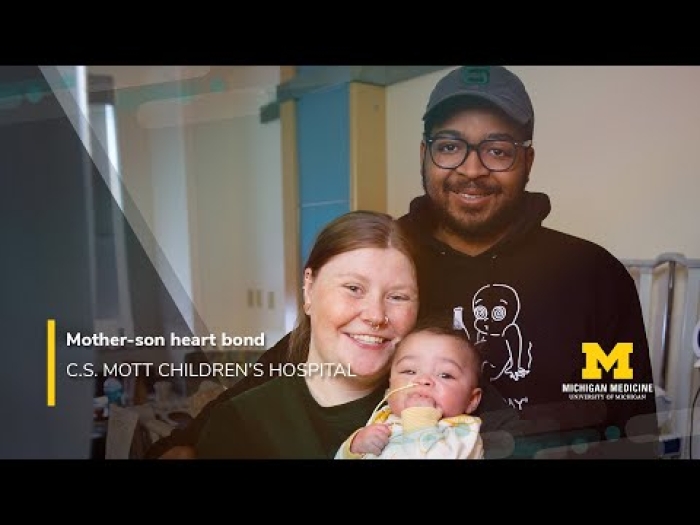New U-M Center for Global Health Equity will empower faculty and students to seek new ways to address health needs of the disadvantaged
Author |
For decades, University of Michigan teams have tackled some of the world’s toughest health challenges through research, education and global partnership.
Now, thanks to a new $10 million gift from Tadataka Yamada, M.D. and Leslie D. Yamada, those teams will have new resources to think even bigger, work together and with global partners more effectively, and make a greater positive impact on the health and health care of people with the greatest need worldwide.
The new gift will fuel a new U-M Center for Global Health Equity.
Currently in the planning stages, the center will accelerate work by faculty, staff and students from across U-M’s schools, colleges, institutes and all three campuses to address inequities in health in the poorest nations, and in disadvantaged populations in middle-income countries.
"The University of Michigan's public mission and excellence across many academic disciplines make us uniquely suited to address health inequities around the world,” says U-M president Mark Schlissel, M.D., Ph.D. “I applaud the Yamadas' generosity in supporting the work of our faculty, students and staff who will create long-term, global benefits through this new center."
Michigan ties, global hopes
The gift comes from a couple with strong U-M ties and an even stronger desire to help developing countries give their citizens access to health advances that people in the United States and others in high-income countries often take for granted.
The Yamadas write, “A great challenge of our time is that millions, mostly children in the poorest countries, die each year unnecessarily from illnesses that can be prevented or treated. The University of Michigan’s outstanding faculty across a broad array of disciplines and culture of working together make it uniquely able to address the challenge. We hope that our gift will help to catalyze action that will make a meaningful contribution toward correcting this unacceptable inequity.”
The Yamadas first became part of the U-M community in 1983, when Dr. Yamada arrived as the new chief of gastroenterology at the U-M Medical School. In 1990, he rose to chair of the Department of Internal Medicine, leading hundreds of U-M physicians and the care of hundreds of thousands of patients at what is now Michigan Medicine.
Since leaving U-M in 1996, he has worked in both the pharmaceutical industry, including as the chairman of research for GlaxoSmithKline and chief medical and scientific officer at Takeda Pharmaceuticals. He also spent five years leading the global health program for the Bill & Melinda Gates Foundation and is now a venture partner with Frazier Healthcare Partners in Seattle. Leslie Yamada has a long record of work and volunteerism in social services and the arts.
Aiming higher
“The new center will amplify, not replace, the broad range of global health efforts already under way at the university,” says Marschall Runge, M.D., Ph.D., executive vice president for medical affairs, CEO of Michigan Medicine and dean of the Medical School. “We have so much strength already, and we hope this center will attract even more faculty and students who want to make a difference in global health and improve the equity of prevention, treatment and outcomes around the world.”
Cross-campus collaborations under the new center might include efforts to strengthen health systems in low-income countries, and initiatives aimed at addressing social determinants of health such as food security. Technical solutions, such as tests of telehealth tools to deliver advanced care to low-income countries remotely, could also be part of the mix.
Building on the Yamadas’ vision, the new center’s initial concept was developed by a team led by Joseph Kolars, M.D., the Medical School’s senior associate dean for education and global initiatives and director of its Global REACH program, and John Z. Ayanian, M.D., M.P.P., who leads the U-M Institute for Healthcare Policy and Innovation (IHPI) and holds professorships in the Medical School, School of Public Health and Gerald R. Ford School of Public Policy. They are working with faculty across the university to develop the concept further.
Now, internal and external advisory groups will form to guide the effort. Further information about how faculty, staff and students can become involved will be shared as planning continues, and town hall gatherings will be held on U-M’s Ann Arbor, Flint and Dearborn campuses.
In addition to events and programs to bring teams together, the center may offer funding for pilot studies, gather and offer global health data for researchers to mine, and enhance global education programs for students.
In developing the concept for the gift, the Yamadas met with many members of the U-M community involved in global health. They were inspired by models of U-M cross-campus collaboration across disciplines, including IHPI, the Center for Interprofessional Education, and the M-Cubed research funding program.
F. DuBois Bowman, Ph.D., dean of the U-M School of Public Health, says, “I am grateful for Tadataka and Leslie Yamada’s generosity and their commitment to global public health. Through increased partnership, this transformative gift has the opportunity to deeply impact the health and equity of the world’s most vulnerable populations.”

Department of Communication at Michigan Medicine





